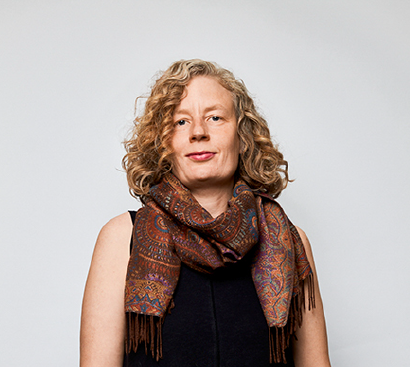This talk is part of the conference on Agonism: Conflicting Interpretations of the Past, Participation Practices, and Transforming Cultural Venues , 7-8 December 2023.

Abstract
Museums expect to be called out, there is inbuilt conflict. Museums are forged in a ‘cunning’ liberal constitutional structure (Povinelli 2002): to conserve for future generations; to make collections accessible to everyone now; to represent the world; to shape the world. Ideals so big they can never be achieved, creating a constitutive deficit. Ideals which also are often in tension, requiring endless negotiation.
‘Museum constitution’ is also forged in creating norms. In ruling certain ideas, perspectives and practices as unsayable, beyond that which can be contained and constitutionally metabolised.
In this sense museums do ‘embrace conflict’ by enveloping, containing and domesticating conflict. Museums also continually fail to deal with conflict beyond their established norms, those ideas and affects in excess of an embrace.
This paper draws on strains of thinking from agnostic political theory and political theories of constituent power – both offering alternatives to liberal institutional cunning. The first – exemplified by Chantal Mouffe – seeks to address the ways liberalism makes unsayable certain positions in ways that can produce extremism. Mouffe proposes agonism, instead of antagonism, producing ‘friendly enemies’ who share a ‘common symbolic space’ while contesting how this ‘common symbolic space’ should be organized and embracing the necessarily unrealisable call of democracy’s ideals (2000, 13; see also 2013, 7). The second – exemplified by Michael Hardt and Antonio Negri (2005; 2009; 2012; 2017) – draws on constituent power, which is emergent and negotiated, enabled by challenging logics of scarcity and where administration is ‘immanent, woven into the social fabric itself’ (2012, 95).
Drawing out the implications for museums, I will suggest that what we mean by ‘conflict’ can be usefully redefined by reworking the political ontology of ‘museum constitution’. This is a crucial given that museums in their liberal mode generate certain types of constitutive conflict through a political ontology that centres museums as places of symbolic recognition, holders of scarce non-renewable resources and sites where there is the constant danger of decisions (permeant displays, collecting) producing exclusion.
Having relocated ‘conflict’ beyond that produced by ‘museum constitution’ itself I activate different aspects of agonism and constituent power, evoking varying ways museums might approach disagreement and felt divergence with different intensities and vectors. To create room for this the key components of ‘museum constitution’ – ‘objects’, ‘future’, ‘conserve’, ‘access’, ‘representation’, ‘world’ – are broken up and infused with a non-representational political ontology so they can then be recombined. What is then offered are three speculative political designs for a deconstituting museum practice: Centring Plurality; Minimal Institution-Maximal Divergent Use; Commoning.
Biography
Helen Graham teaches museum and heritage studies at the University of Leeds, UK. Helen’s research lies at the intersection of political theory, affect theory and participative and action-led forms of research. With museums, heritage and place as a focus, Helen investigates dynamics of property and rights, of democracy and ideology and of agency and affinity, often through collaborative and experimental projects, both in the doing and on the page.
7 December 2023 at 16.00 (CET)
Online
Please register for the conference to receive the Webex link.



